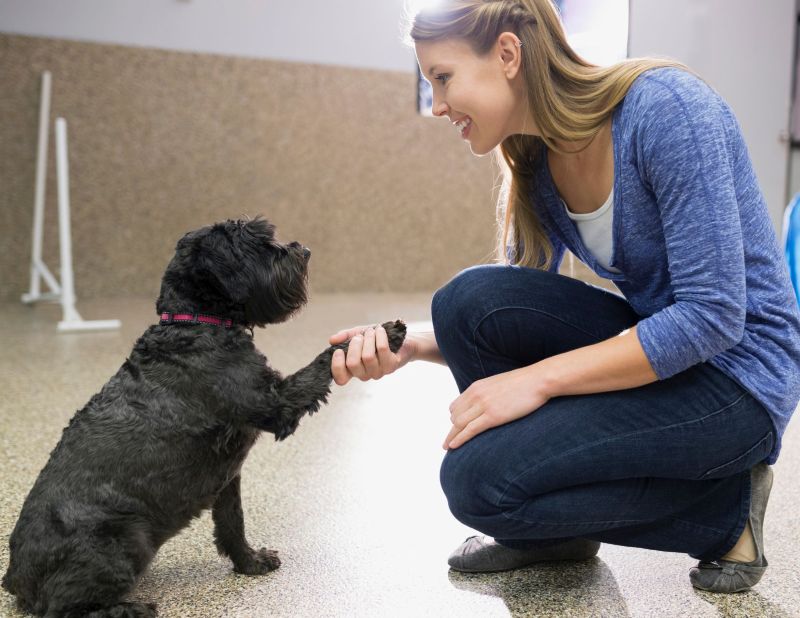As summer winds down and schools start back up, many pet care facilities have noticed an uptick in cases of Canine Influenza. Though pet parents may associate outbreaks with an unclean environment, it’s important to emphasize that even well-maintained facilities can experience these incidents. Educating pet parents about the virus, its symptoms, and treatment options can go a long way in easing their concerns and promoting the well-being of pets in your care.
To make this easier, download our FREE Canine Influenza Infographic to share with pet parents. This infographic helps break down the symptoms, prevention methods, and vaccination benefits in a simple, visually appealing format that your clients will appreciate.
What is Canine Influenza?
Canine Influenza, also known as “dog flu,” is a highly contagious respiratory disease caused by specific strains of influenza virus. The two primary strains identified in the U.S. are H3N8 and H3N2. Both strains can spread rapidly in environments where dogs are in close proximity, such as kennels, grooming salons, or dog parks.
The virus is transmitted via direct contact with an infected dog, contaminated surfaces, or through the air when an infected dog sneezes or coughs. While Canine Influenza is not typically fatal, it can cause severe symptoms in some cases, especially if left untreated.
Common Symptoms of Canine Influenza
Identifying the signs early can prevent the spread of the virus. Pet parents should be informed about the following symptoms:
- Persistent cough, often mistaken for kennel cough
- Nasal discharge or runny nose
- Fever, typically between 103-105°F
- Lethargy or decreased energy
- Loss of appetite
- Eye discharge
These symptoms can develop within 2-4 days of exposure, and while most dogs recover within 2-3 weeks, some may require medical intervention, especially if secondary infections like pneumonia occur.
Treatment and Prevention Options
Once diagnosed, treatment for Canine Influenza typically involves supportive care such as hydration, nutrition, and sometimes antibiotics to prevent secondary bacterial infections. In more severe cases, hospitalization may be necessary to ensure the dog receives fluids and medications to manage symptoms.
However, prevention is the best strategy. One of the most effective ways to prevent Canine Influenza is through vaccination. Vaccines are available for both the H3N8 and H3N2 strains, and they can greatly reduce the severity of the virus if the dog is exposed.
Encouraging pet parents to vaccinate their dogs, especially those frequently boarding in kennels or attending dog parks, can help reduce outbreaks. Inform them that annual vaccines may be needed to maintain immunity.
Using Kennel Software to Educate Pet Parents
If you run a pet care facility, now is the perfect time to leverage kennel software to keep your customers informed. Modern kennel management systems often come with features that allow you to send mass communications through email or text messaging, making it easy to distribute important updates or health alerts.
For example, during flu season or after an outbreak, you can quickly notify pet parents about the symptoms of Canine Influenza, the importance of vaccination, and any preventive measures your facility is taking. Using this feature can reinforce your status as an expert in the pet care industry, which helps build trust with your customers.
Many kennel software solutions also include vaccination tracking features. This allows you to monitor which dogs are vaccinated against Canine Influenza and send reminders to pet owners when vaccinations are due, helping to prevent future outbreaks.
Benefits of Proactive Communication with Pet Parents
By educating pet parents about Canine Influenza and using your kennel software to communicate effectively, you are not only helping to protect the pets in your care but also strengthening your relationship with clients. Here are some benefits of proactive communication:
- Increased Trust: Demonstrating your knowledge and expertise on health matters builds trust with pet owners.
- Prevention: Encouraging vaccinations through regular reminders reduces the likelihood of an outbreak, ensuring your facility stays safe.
- Customer Retention: Pet parents will appreciate the effort you put into keeping them informed, making them more likely to continue using your services.
Conclusion
Canine Influenza is a serious but manageable concern for pet care facilities. By educating pet parents on the symptoms, treatment options, and importance of vaccination, you can help mitigate the spread of the virus. Leveraging kennel software for mass communication and vaccination tracking will enhance your facility’s ability to prevent outbreaks and maintain a reputation for being a safe and responsible business. Always remember, a well-informed pet parent is your best partner in keeping pets healthy.
Don’t forget to download our FREE Canine Influenza Infographic to share with your clients and reinforce the importance of vaccination as part of your facility’s proactive health care measures.
FAQ
Q1: Can dogs pass Canine Influenza to humans?
No, Canine Influenza is not known to infect humans. However, pet parents should still practice good hygiene around infected dogs.
Q2: How long does the Canine Influenza vaccine last?
The vaccine typically lasts for one year. Annual revaccination is recommended, especially for dogs that frequent high-risk environments.
Q3: Can my dog still catch Canine Influenza after vaccination?
While the vaccine reduces the severity of the virus, no vaccine is 100% effective. However, vaccinated dogs are less likely to experience severe symptoms.



